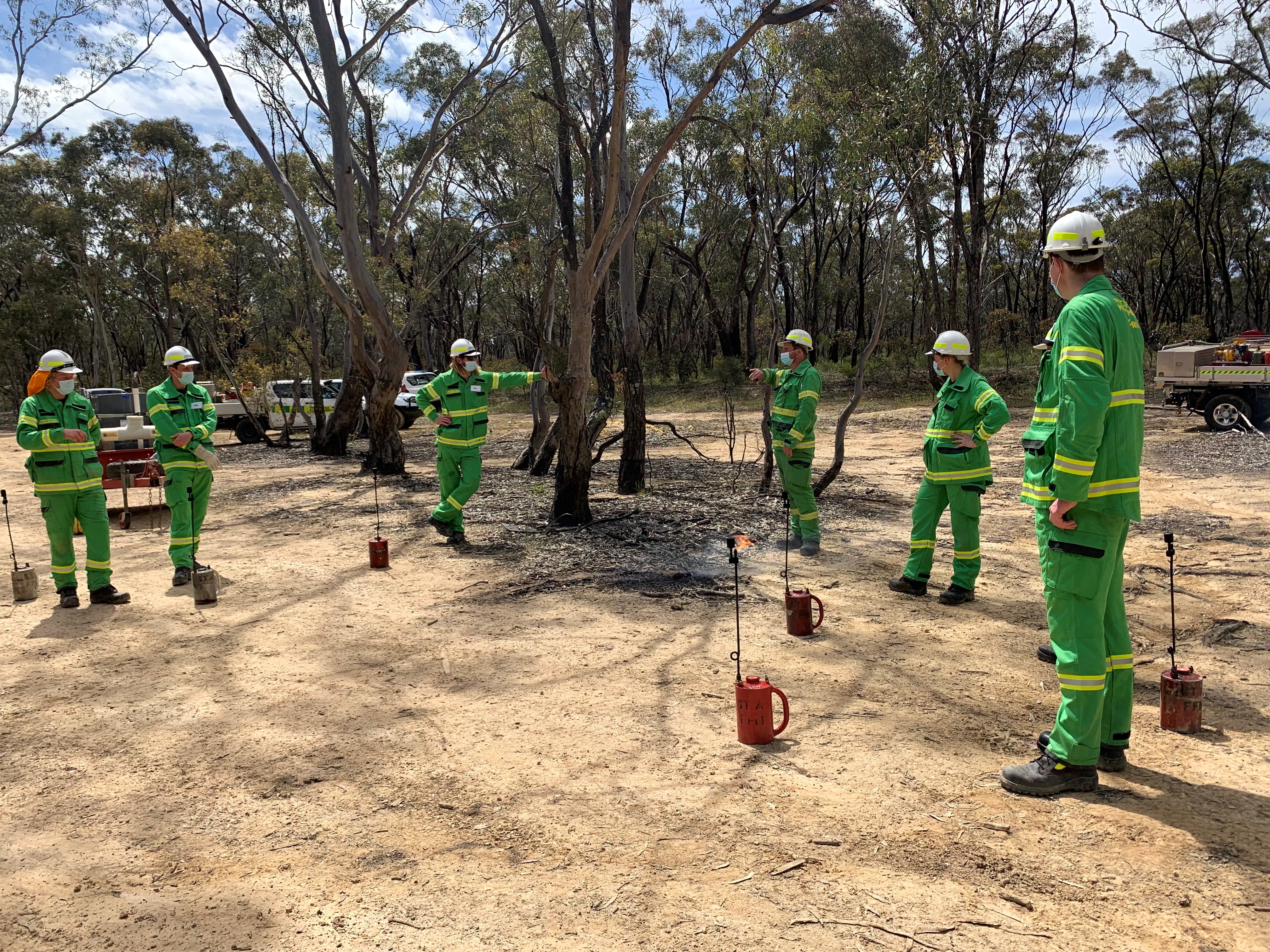 FFMVic Loddon Mallee Regional Training Coordinator, Travis Storer said the course covers the fundamentals of firefighting including fire behaviour, fire suppression, planned burning, safety and survival techniques.
FFMVic Loddon Mallee Regional Training Coordinator, Travis Storer said the course covers the fundamentals of firefighting including fire behaviour, fire suppression, planned burning, safety and survival techniques.
“Our new firefighters are completing a mix of classroom theory and field-based activities to prepare them for the demands fighting bushfires as well as the varied role of a forest firefighter,” Mr Storer said.
“Forest firefighters rely extensively on dry firefighting techniques as water is often scarce in the middle of the bush. The course covers hands-on training in how to use rakehoes and other hand tools to construct a mineral earth control line as well as skills such as four-wheel driving and use of chainsaws and water pumps which are essential for forest firefighting.
“These recruits will not only respond to bushfires across the region and state, they’ll also be conducting bushfire fuel management work such as planned burning, slashing, track clearing and other land management activities as part of their roles.
“Once they’ve successfully completed the course, the new recruits will work alongside our current staff, where they’ll continue with on-the-job learning from experienced firefighters while completing bushfire preparedness and response work.”
Eighteen of the recruits, which are a mix of Project Firefighters (PFFs) and current staff, are completing the week-long course in St Arnaud this week, followed by Swan Hill for the remainder the next week.
This year FFMVic has recruited 87 PFFs in the Loddon Mallee Region to help keep communities safe.
“Fifty-one of our PFFs who have worked with us during previous fire seasons have already gone straight to work on bushfire fuel reduction activities ahead of fire season,” Mr Storer said.
Loddon Mallee PFFs will be based in depots at Hattah, Mildura, Robinvale, Swan Hill, Speed, Underbool, Werrimull, Rainbow, Avoca, Bendigo, Echuca, Castlemaine, Cohuna, Heathcote, Inglewood, Maryborough, Rushworth, Macedon and St Arnaud.
All FFMVic crews are adhering to appropriate COVID restrictions and hygiene guidelines to ensure operations and training can safely continue across the state.





